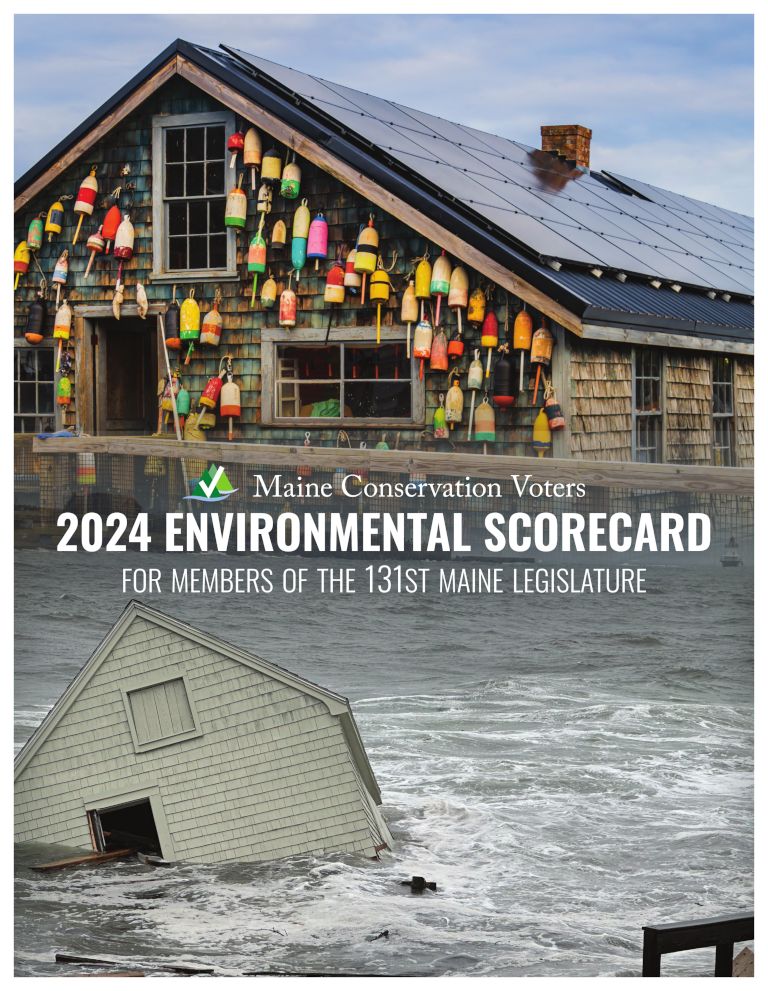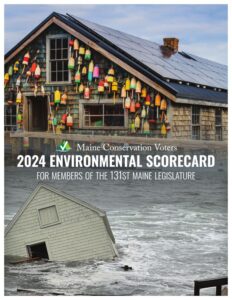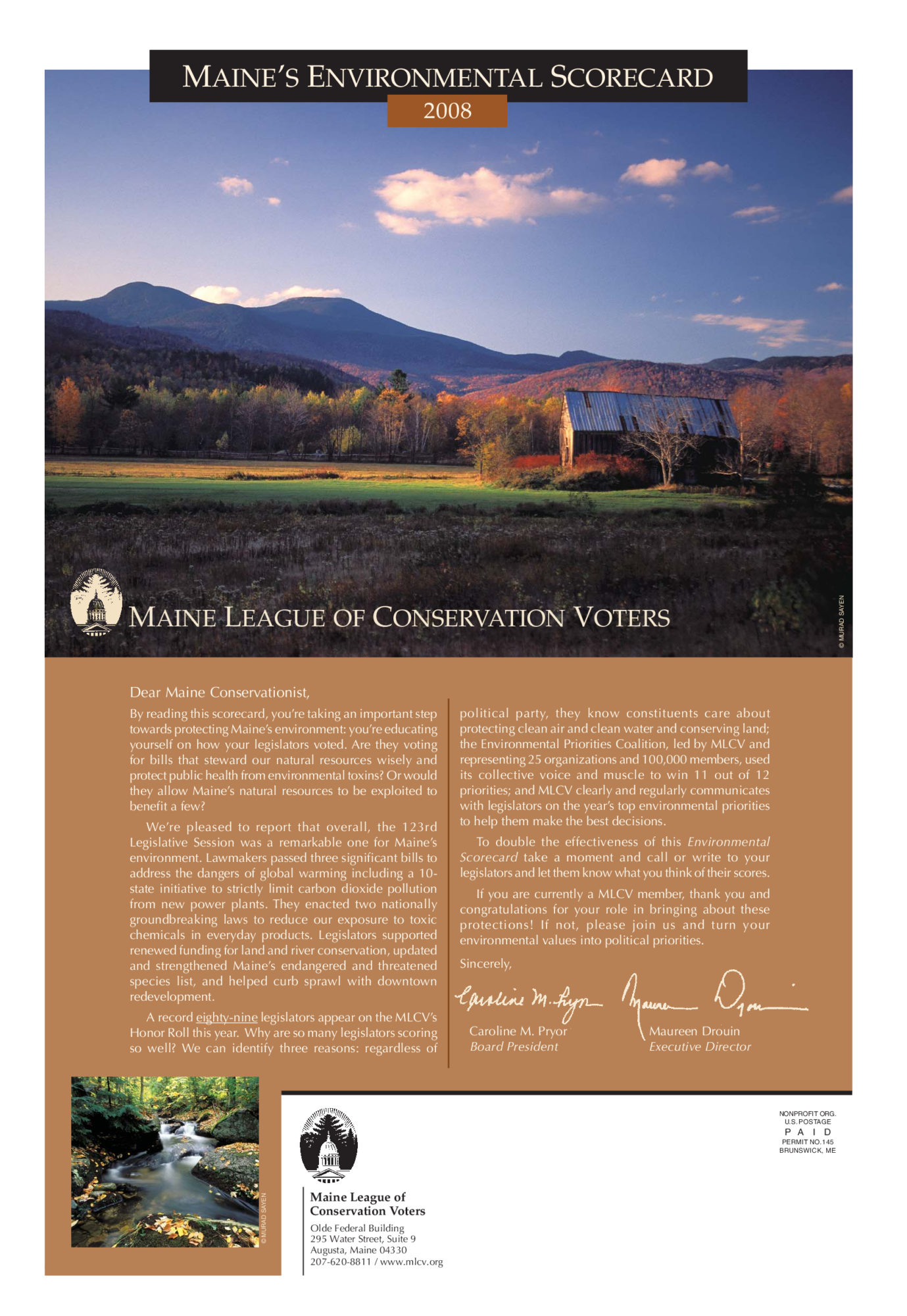Scorecard
Welcome to the 2024 Scorecard
The 131st (2023-2024) Legislature at a Glance

Maine House of Representatives
151 Total Seats
- 72 legislators with scores of 90%-100%
- 12 legislators with scores of 50%-89%
- 69 legislators with scores of 0-49%

Maine Senate
35 Total Seats
- 20 legislators with scores of 90%-100%
- 4 legislators with scores of 50%-89%
- 11 legislators with scores of 0-49%
Frequently Asked Questions
Since 1986, Maine’s Environmental Scorecard has provided objective, factual information about key legislation and the corresponding voting records of all members of the Maine Legislature. By identifying and contextualizing the year’s most important environmental, equity, and democracy legislation, we strive to tell “the story of the session” and the lawmakers, organizations, and advocates who make a difference. We score lawmakers on their votes on key bills to distinguish which legislators are working to protect our environment and democracy.
While MCV’s early scorecards were laser-focused on “traditional” environmental issues like clean air, clean water, and wildlife conservation, the scope of the annual Environmental Scorecard has expanded along with our understanding of the inextricable links between a healthy environment, sustainable climate, inclusive democracy, and equitable society. Today, the Scorecard represents our shared, intersectional priorities and tells a more complete story of the session.
MCV’s Scorecard Committee identifies and scores the most important pro-environment, pro-climate, and pro-democracy bills for which roll call votes were available. When possible, the same key pieces of legislation are scored for lawmakers in both the House and the Senate. However, the Scorecard Committee may opt to score an important bill for lawmakers in only one chamber if roll calls are not available for both.
Annual scores are based on a scale of 0 to 100 and calculated by dividing the number of pro-environment, pro-climate, and pro-democracy votes cast by the total number of votes scored. Because voting on important issues is a key responsibility of legislators, MCV scores all unexcused absences as anti-environment, anti-climate, anti-democracy votes. Excused absences are not scored; whether an absence is excused is determined by the Clerk of the House and the Secretary of the Senate.
Lifetime scores are calculated in the same manner so that each vote counts equally. Note that lifetime scores are not the average of annual scores, which would assign different weights to votes since the total number of votes scored varies from year to year.
Signing (or vetoing) legislation is only one piece of the Governor’s overall impact on pro-environment, pro-climate, and pro-democracy priorities. Recognizing that the Governor also has a critical role to play in prioritizing (or blocking) initiatives through administrative and executive action, MCV publishes comprehensive special reports on Maine’s governors. These reports may stand alone or be included in the annual Environmental Scorecard.
Maine’s environment, climate, and democracy, the percentage of positive votes over the course of a year offers a good indication of an lawmaker’s overall record. MCV also reports lifetime scores to provide a more complete picture of lawmakers’ commitment to combating climate change, protecting our environment, creating a more equitable future, and strengthening our democracy. You can explore the Scorecard to find how your legislator voted. We hope you’ll use what you find here to thank pro-conservation legislators, encourage under-performing legislators to improve, and make a more informed choice in the next election cycle.
























